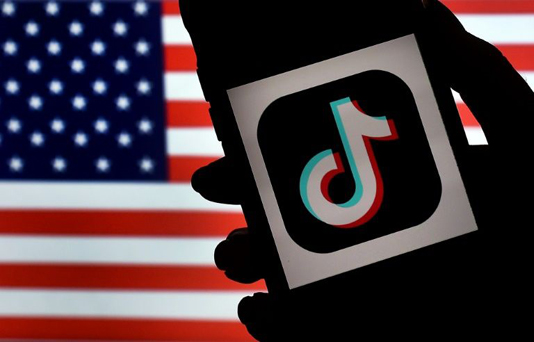WASHINGTON, Sept 19, 2020 (BSS/AFP) – The US ban on Chinese-owned apps
WeChat and TikTok sets up a pivotal legal challenge on digital free
expression with important ramifications for the global internet ecosystem.
President Donald Trump’s administration cited national security concerns,
claiming the popular applications could be “subject to mandatory cooperation
with the intelligence services” of Beijing.
Critics said that while the security risks were unclear, the sweeping ban
of popular online platforms raises concerns about the government’s ability to
regulate free expression under the US constitution’s First Amendment.
“It’s a mistake to think of this as (only) a sanction on TikTok and WeChat.
It’s a serious restriction on the First Amendment rights of US citizens and
residents,” said Jameel Jaffer, director of the Knight First Amendment
Institute at Columbia University.
Hina Shamsi of the American Civil Liberties Union agreed that the order
poses constitutional questions and called it an “abuse of emergency powers”
by Trump that creates more security issues than it solves by blocking app
fixes and updates.
– Limited functionality –
The ban set to take effect Sunday prohibits downloads of TikTok, a popular
video-sharing app with some 100 million US users, and WeChat, a Chinese
super-app used for messaging, shopping, payments and other services, with
some 19 million users in the United States.
Officials said WeChat’s functionality would be affected immediately after
the ban takes effect, even though some services might still work.
TikTok is expected to function through November 12, the deadline set under
an executive order by Trump, but users would not be able to download updates
to the video app.
The move ratchets up the pressure on TikTok parent firm ByteDance to strike
a deal with a US partner that would allay Washington’s data security
concerns, with Silicon Valley tech giant Oracle in talks to be part of a
group that would put TikTok in American control.
– Internet fragmentation –
The latest ban, critics say, could create more cracks in a fragmenting
global internet system by allowing governments freer rein in blocking
services.
“Trump’s decision is likely further to splinter the internet,” said Darrell
West, director of the center for technology innovation at the Brookings
Institution.
“It will encourage other countries to retaliate against American companies
and raise their own security concerns against foreign firms. The result could
be several different internets based on the country of origin.”
Facebook-owned Instagram chief Adam Mosseri voiced similar concerns,
tweeting that “a US TikTok ban would be quite bad for Instagram, Facebook,
and the internet more broadly.”
Mosseri added that “most of the people who use Instagram are outside the
US, as is most of our potential growth. The long term costs of… countries
making aggressive demands and banning us over the next decade outweigh
slowing down one competitor today.”
Legal challenges have been filed by TikTok and WeChat users in the United
States seeking to block the expected shutdowns.
Vanessa Pappas, the interim head of TikTok, said the challenge “is
certainly bigger than TikTok alone.”
“I truly believe this moment will have a profound impact on our industry
and shaping the internet for years to come,” Pappas said in a tweet.
Robert Chesney, a University of Texas professor of constitutional law, said
the lawsuits face an uphill battle and that courts have generally allowed
presidents to exercise emergency powers to impose embargoes.
Chesney said there is a “First Amendment element” to the lawsuits, but that
the bans related to business transactions of the tech firms are still subject
to national security review.
“They have a right to free speech, but that doesn’t give them the right to
set up a business using US infrastructure,” he told AFP.



